Podstawa programowa dla uczniów szkół średnich zawiera zagadnienia, które powinni oni opanować przed podejściem do egzaminu dojrzałości. Egzamin maturalny uczniowie zdają na wybranym przez siebie poziomie: podstawowym lub rozszerzonym.
Na poziomie podstawowym uczniów nie obowiązuje ten sam zakres materiału z gramatyki, co na poziomie rozszerzonym.
Uczniowie mają również mniej słownictwa do opanowania. Są sprawdzani pod kątem rozumienia ze słuchu, rozumienia tekstu czytanego i redagowania prostych tekstów użytkowych (np. list,
artykuł). Oprócz tego, na tym etapie edukacji powinni umieć swobodnie wypowiadać się w języku angielskim i dlatego też na maturze obowiązkowy jest również egzamin ustny. Zgodnie z podstawą programową maturzysta zdający angielski na poziomie podstawowym powinien być na poziomie B1 według skali CEFR.

